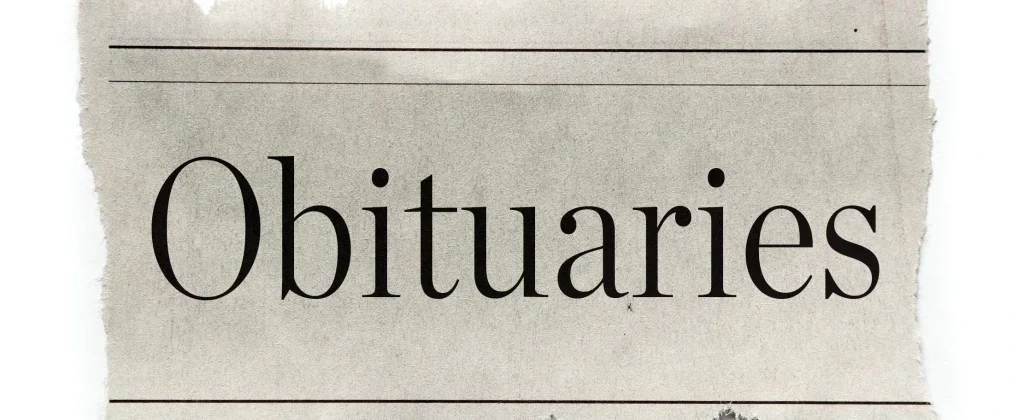

Here is Eli Frankel at The Baffler:
THE PITCH IS SIMPLE: drafting an obituary for a loved one can be a difficult and emotional task, so why not outsource the work to a computer? Recent advances in generative AI have made it a cinch. Just plug in some basic biographical information, a few major life events, a hobby or two, and an advanced language model, having already scraped the internet to construct multidimensional analyses of linguistic patterns, will pop out a concise and respectable obit.
Such is the promise of “Finding Words,” a new tool from Empathy—a tech start-up that helps the bereaved with, among other grim tasks, funeral planning, “processing grief,” and, yes, drafting obituaries. It takes on average 540 hours to settle a deceased’s affairs, Empathy reports, so imagine if AI could save a few here and there?
And this:
Obituaries, in distilling a lifespan to a few hundred words, mirror contemporary values; they write and reinforce scripts for what constitutes a “good life.” Language models trained to recognize and parrot the linguistic patterns of old obituaries are more likely to reproduce those scripts, inadvertently projecting forward the values of the past. While technology may enable broader representation of everyday people in obituary pages, the specific technology of LLMs risks reproducing the biases that have emerged in obituaries—like the veneration work and the single-minded attention to “notable” achievements. Before we embrace the age of auto-obituaries, we must think more deeply about the submerged political content of the form itself.
And this:
It is true that tools like Finding Words may help mourners write and place obituaries for their loved ones. And it is possible that this could lead to a greater representation of everyday people and gradually change the character of obituary pages. But obituaries should be more than just an account of the extent to which the deceased measured up to prevailing ideas of success.
L[arge]L[anguage]M[odel]s like those behind Empathy’s “Finding Words” are likely to produce only pro forma lists of achievements and merits. If we automate obituaries for everyday people, for those unlikely to make a New York Times obituary section, we might reserve the dignity of human-generated memorialization for only the most accomplished and famous among us. The presence of the human hand is clear and comforting: someone took time to reflect on a life, to produce a coherent memory, and to communicate their human emotion for the purpose of dignifying and properly honoring a loved ones’ life. One need not spiritualize the process of writing an obituary to realize that more formulaic approaches to the process of grief and reflection that risk replicating our historical biases miss what makes the act of memorializing a human life significant.
Read the entire piece here.